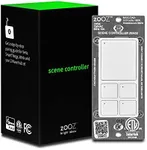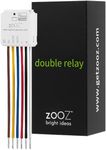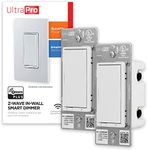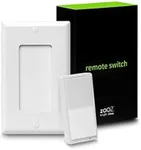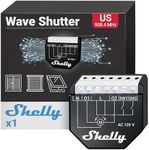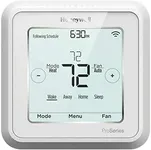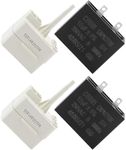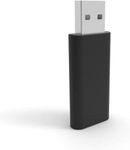Buying Guide for the Best Z Wave Controllers
Choosing the right Z-Wave controller is crucial for building a reliable and efficient smart home system. A Z-Wave controller acts as the central hub that communicates with all your Z-Wave devices, allowing you to control and automate various aspects of your home. To make an informed decision, it's important to understand the key specifications and how they align with your specific needs.CompatibilityCompatibility refers to the ability of the Z-Wave controller to work with various Z-Wave devices and other smart home systems. This is important because it ensures that your controller can communicate with all the devices you plan to use. When evaluating compatibility, look for controllers that support a wide range of Z-Wave devices and can integrate with other smart home ecosystems like Zigbee, Wi-Fi, or proprietary systems. If you have existing smart home devices, make sure the controller you choose can work with them seamlessly.
RangeThe range of a Z-Wave controller indicates how far its signal can reach to communicate with devices. This is crucial for ensuring that all your devices can stay connected, especially in larger homes. Z-Wave controllers typically have a range of about 100 feet indoors, but this can be affected by walls and other obstacles. For smaller homes or apartments, a standard range may suffice. However, for larger homes or properties with multiple floors, you may need a controller with a stronger range or consider using Z-Wave repeaters to extend the signal.
Ease of UseEase of use refers to how user-friendly the Z-Wave controller is, including its setup process, interface, and overall operation. This is important because a complicated controller can be frustrating and time-consuming to manage. Look for controllers with intuitive apps or software, clear instructions, and good customer support. If you are new to smart home technology, a controller with a simple setup process and easy-to-navigate interface will be beneficial. More advanced users might prefer controllers with more customization options and advanced features.
Automation CapabilitiesAutomation capabilities refer to the controller's ability to create and manage automated routines and scenes. This is important for maximizing the convenience and efficiency of your smart home. Controllers with robust automation features allow you to set up complex scenarios, such as turning off all lights when you leave the house or adjusting the thermostat based on the time of day. Consider your specific needs and how much automation you want to implement. If you prefer a highly automated home, look for controllers with advanced automation options and support for various triggers and conditions.
Security FeaturesSecurity features in a Z-Wave controller ensure that your smart home system is protected from unauthorized access and potential cyber threats. This is crucial for maintaining the privacy and safety of your home. Look for controllers that offer secure encryption, regular firmware updates, and robust authentication methods. If security is a top priority for you, choose a controller with advanced security features and a good track record of protecting user data.
ExpandabilityExpandability refers to the ability of the Z-Wave controller to support additional devices and functionalities as your smart home needs grow. This is important for future-proofing your investment and ensuring that your system can evolve with your needs. Look for controllers that can handle a large number of devices and offer support for new technologies and updates. If you plan to expand your smart home system over time, choose a controller that can easily accommodate new devices and features without requiring a complete overhaul.
